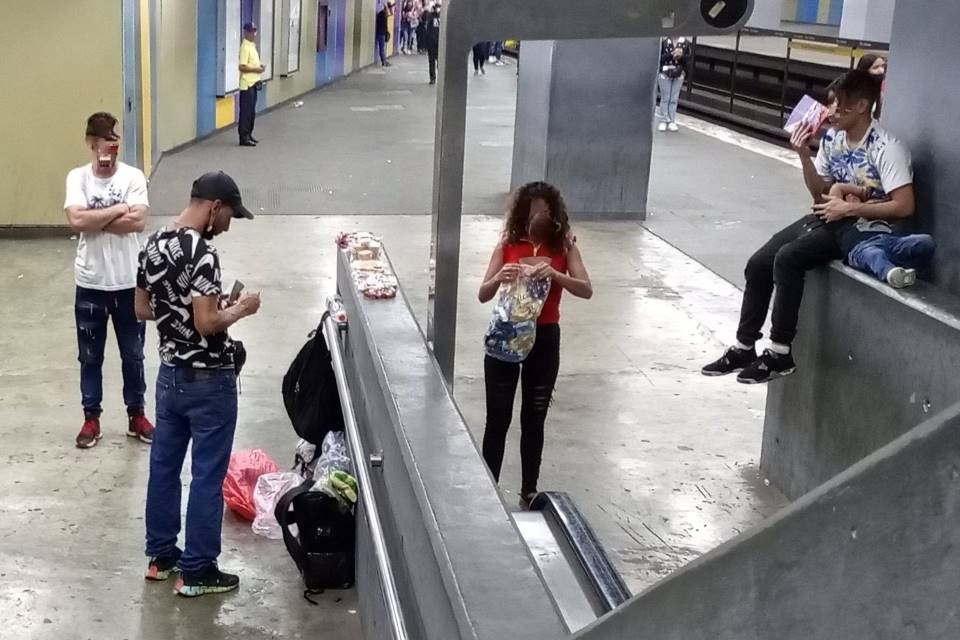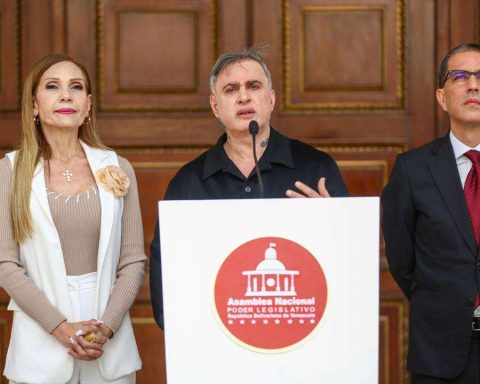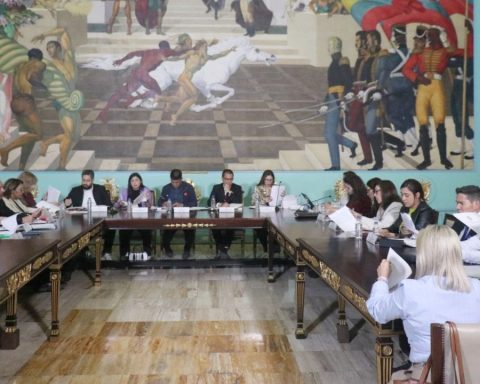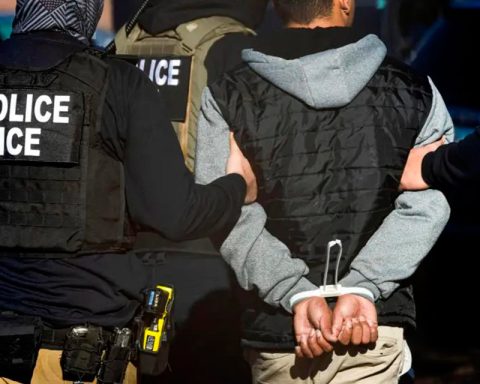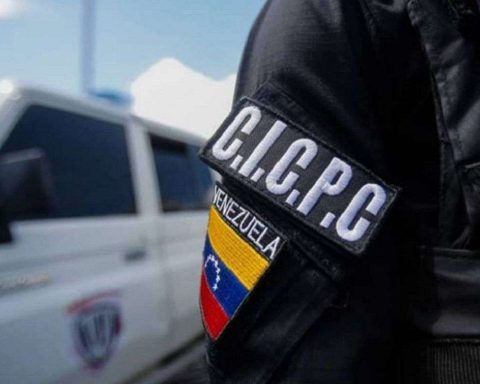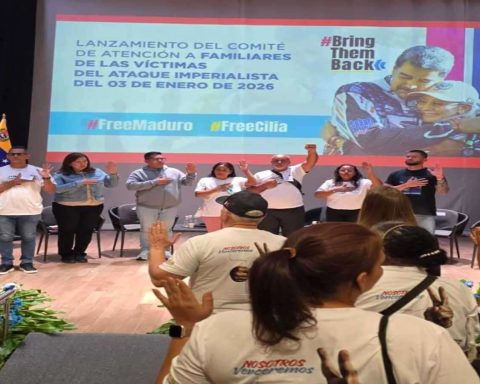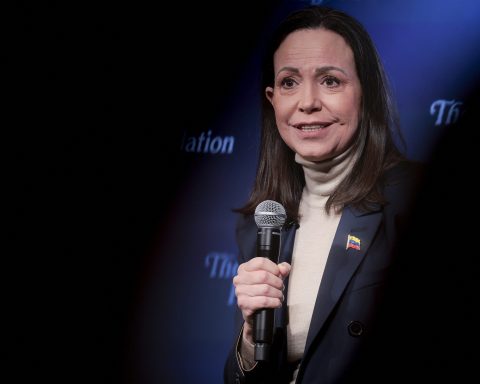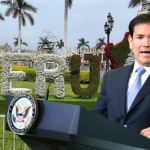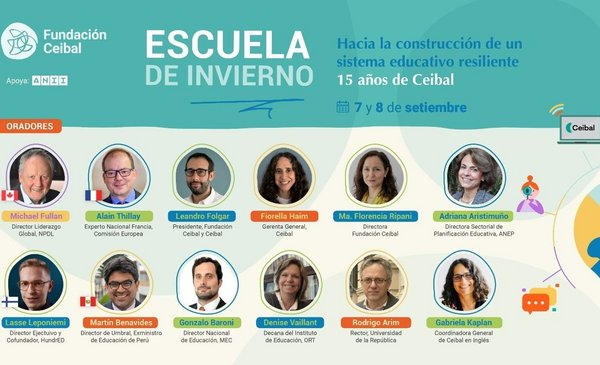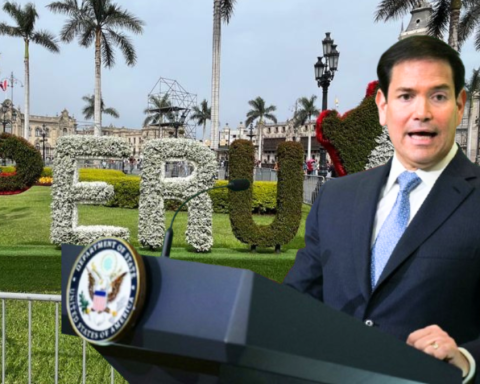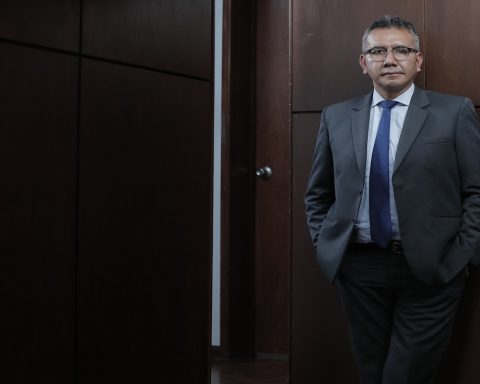The police operation deployed after the recent homicide inside a car has affected the peddlers who, for years, have taken over the underground spaces, abandoned by the State. They are torn between fleeing from the police and obtaining a daily income from the sale of trinkets due to the lack of employment and precarious wages. “Before what happened at the Miranda station I could make up to $15 a day, but with the operation and the police it costs me $5,” says a student in his last semester of Administration and father of two teenagers.
Reference photo: @RevetGuillermo
The deterioration and chaos of the Caracas Metro System reached a new level after the knife fight that originated on August 13 at the Miranda station, when two street vendors clashed, apparently, for control of merchandise sales in the car.
The brawl ended with a dead man, identified as Juan Alberto Escalona Mora (43), two involved in escape and a detainee.
“Horrible what we recently went through in the Caracas Metro. Two guys got stabbed in front of us and all the passengers and the loser got stabbed horribly among several at the Miranda station. Urgent, please, put security in the Metro”, manifested on Twitter one of the train passengers about the altercation.
A week later, on August 2, the Ministry of the Interior, Justice and Peace announced an operation security that was the trigger for 87 street vendors who frequented the system, were evicted from the trains.
endes peaceVice Minister of Prevention, Citizen Security and Peace Quadrants spoke of a plan made up of a thousand officials from different police forces deployed throughout the almost 50 stations of the system.
Since then, the streets and vans of surface public transport, mainly in the center of Caracas, have become more crowded with the hundreds of street vendors who urgently need to continue their daily work inside or outside the Metro stations due to the lack of employment options and fixed income.
This Thursday, September 1, Nicolás Maduro presented “the Metro Plan moves with you” with which he set the goal of improving the operability of the transport system through which 2.8 million people pass daily.
Regarding the informal vendors who for years have passed through the trains daily, Maduro said that they should be relocated to centers or markets such as La Hoyada and Petare, or in squares and boulevards near the system.. “You should talk to them to remind them that they are breaking the rules, without repression.”
Earlier that day, andhe Minister of Internal Relations, Justice and Peace, Admiral in Chief Remigio Ceballos, informed On twitter about the arrest of 58 people, inside the subway, for committing crimes.
“It costs me to reach five dollars”
Since the end of August, what used to be a back and forth of offers of various types of products shouted along the corridors of the cars, has been drastically reduced to a few vendors, religious and daring beggars who take risks, despite the police presence which they raffle when they can, in order to “sell something a day”.
#24AUG| Withdrawal of Informal Merchants and reinforcement of security in Caracas Metro stations. @Visipol_MIJP @Chacao pic.twitter.com/xer7sBO8rX
– Municipal Police of Chacao (@policiachacao) August 24, 2022
“If the officials catch us, they take away the merchandise and the reals. Some can even attack you, ”says one of the sellers consulted for this note.
Also read: My experience in the Metro, by Daniel J. Santolo V.
Others tell how the bloodshed that occurred at the Miranda station has stigmatized them. “There are many people who call us all criminals and most of us are in need and we are parents.”
Francisco, a Metro pedlar since 2014, is the father of two teenagers and a student in his last semester of Banking and Financial Administration at an institute in Caracas. Before selling in the Metro, he worked at the Autonomous Institute of Citizen Security and Transport (Insetra), but with the crisis in 2014 he resigned and began selling “little pots with water” on line 3, which did not have air conditioning.
Neither of Francisco nor of the others who contributed their testimonies was it possible to have photographs. The fear of repression marks them.
Although he assures that “in the Metro he sells whoever he wants”, Francisco spoke with the oldest vendors, after a few weeks of starting, to be able to formalize his underground marketing. Thus, he avoided repeating the sale of the same products and causing problems among the vendors.
Miranda Station of the Caracas Metro Photo: Municipal Police of Chacao
«Before what happened at the Miranda station I could make up to $15 a day, but with the operation and the police it costs me $5. And if you’re just starting out and they catch you, they take your merchandise and you’re left at zero. They don’t let us work and they don’t give us solutions,” Francisco points out.
On the surface the battle is another. A vendor on Francisco Miranda Avenue, near Chacao, explains that “many of the vendors who were in the Metro did not allow those on the surface to enter the business”, so now, many of those who are in the streets and avenues, mainly those that surround the stations in the east of the city, “run to those who were in the Metro.”
Ali Povedaa member of the board of directors of the Association of Workers, Entrepreneurs and Microentrepreneurs (Atraem) estimates that between seven and eight million people, 60% of the population actively working, works informally. In addition, there is an “ambivalent phenomenon” that makes part of that contingent be, at the same time, employees of the State.
About the sales inside the subway, he says that this marketing should not exist but the need of the people is also a reality.
«How to combine the two purposes, that people get an income for their work and not for crime, and at the same time they are provided with contact with the roads through which the population moves? It would be necessary to see the creation of some special zones, but not too separated from the roads traveled by the population, “said Poveda quoted by Decoded.
Another difficulty surface vendors face is “police surveillance that doesn’t let us work.”
Stevens, a candy vendor in Chacao, started a year ago with his wife to sell inside the transport units. Both are the father of a two-year-old boy and work Monday through Friday, from 7:00 am to 6:00 pm, to set up their own food sale.
«Sometimes I have to run hard to escape the police, because they want to take my merchandise, although not everyone is like that. Some even warn you not to take yours, but many times I have had to go into shopping centers and wait there for a while until I can go back to work, “says Stevens.
Ensures that not all vendors are criminals, most are people for whom the minimum wage is not enough and need to solve.
industrial cleaning
For Ricardo Sansone, former general coordinator of Familia Metro for 20 years and Operations inspector, he points out that “it is urgent to solve the problems of the Caracas Metro to return to a technical management, the one that was dedicated to maintaining the high quality standards in commercial operation. and maintenance. All of this was abandoned, for an annual maintenance program for trains and infrastructure, and it was switched to a reactive maintenance system, that is, they only used it when failures arose.
“Until the arrival of the pandemic, our calculations put investment in equipment and infrastructure at more than 2.3 billion dollars. Because, in addition to repairing trains, there are escalators, air conditioning in stations, increased ventilation and electrification of tracks, as well as updating the automatic piloting system”, Sansone details.
#1Sep There are 365 cleaning operators who serve the 48 stations of the @metro_caracas our working class assumes with a lot of commitment the functions of preventive and corrective maintenance of the system, from now on each station will show a different face to the users pic.twitter.com/qeG8BNlnWq
– Ramón Celestino Velásquez Araguayán (@rvaraguayan) September 2, 2022
Likewise, it highlights that “the current management of the Metro is not dedicated to maintaining high standards of commercial operation. It is sheltered, first by the great physical problems of the system (infrastructure and trains), the fact that there is no money to repair and there are no spare parts. In addition to how difficult it is for the subway to buy them, because everyone owes money abroad.
In relation to cleaning, Sansone emphasizes that this has to be of an industrial type as it was done before, that they were work teams at night and during the day the cleaning of the stations was maintained. Currently, those who clean the stations are employees of the Mayor’s Office of Caracas or social programs.
«You cannot put a person to clean a space of five thousand square meters with a broom and a shovel. Instead, the ideal would be to put in place a good system with supervision and good teams.”
«I was in the Metro System since before its inauguration. It was among the most iconic works in Venezuela, along with PDVSA and Electricidad del Caroní. It has won many awards for cleanliness, compliance and safety. It hurts to see how the work of the engineer José González Lander was destroyed”, concludes Sansone.
Post Views:
305
